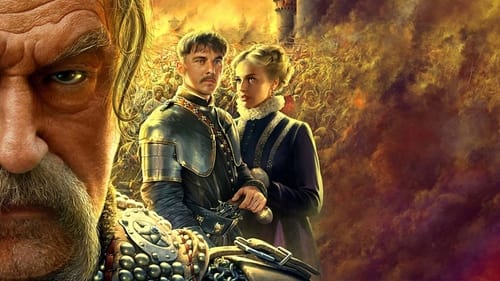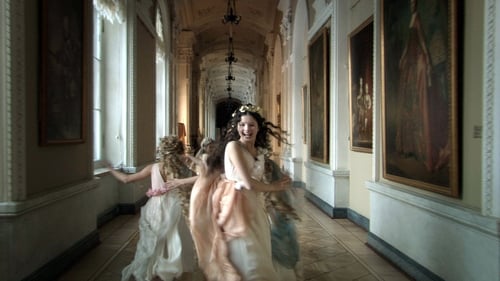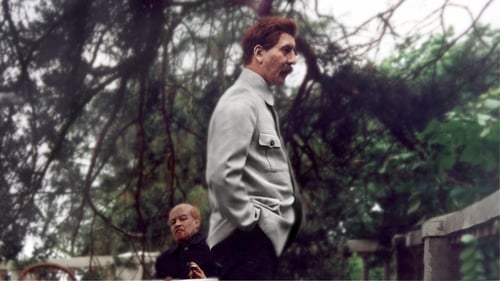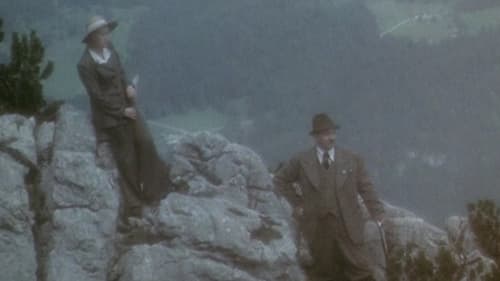
Editor

Editor
Set in the 16th century, this is a story about Ukraine's Cossack warriors and their campaign to defend their lands from the advancing Polish armies.

Editor
Egor, a successful thirty-year-old engineer falls in love with Lucy, a flamboyant artist and amateur actress. He clashes with her brother Alex, an “evil genius” photographer, who has dedicated his new exhibition “Sunless City" to St. Petersburg. Egor can't understand the values of the “sunless city”, the fringe world inhabited by Lucy and Alex. After Egor realizes that Lucy is a drug addict, he desperately tries to save her...

Script Supervisor
A ghost and a French marquis wander through the Winter Palace in St Petersburg, encountering scenes from many different periods of its history.

Editor
Unfolding over two days in 1924, the film depicts the dying Lenin, world revolutionary and father of the USSR, now powerless and isolated at his Gorki estate. Cared for by his wife, Nadezhda Krupskaia, sister Maniasha, his German doctor and several attendants, Lenin raves about his diminishing faculties, discusses the deaths of great figures (including Marx), rides a car to a picnic in a meadow and ponders his historic legacy.

Editor
In 1942 Bavaria, Eva is alone, when Adolf arrives with Josef, his wife Magda, and Martin to spend a couple of days without politics.

Editor
A film director Nikolai Khudokormov is on the brink of his 50th anniversary. He has the whole life rich in events under his belt: creative quests, several marriages and children. Now he has to live with an old insane Mother and seems to be indifferent to what is going on around. But at the same time he is obsessed by the idea to make a film which will be his best one. Nikolai makes every effort to raise the money for this project. And all the time he is followed by a mysterious stranger. She is a beautiful young creature who speaks to him about the vanity of the world and the meaningless of a human life. Finally, Nikolai realizes that he is speaking to the Death herself.

Editor
Originally aired on Russian television, this five-part semi-documentary series tells the story of a Russian naval commander in charge of an Arctic-based ship. The film provokes a meditation on solitude and isolation, while revealing the daily duties associated with the ship. Voice-over narration by the commander, other sailors, and even a third-person voice provide the "confession" of the title.

Editor
A documentary film about the Russian director Sergei Kosintsev.

Editor
A Humble Life is certainly true to its title, a documentary study of the day-to-day world of Umeno Mathuyoshi, an old woman who lives in an isolated mountain house in the Nara prefecture in Japan.

Editor
Petersburg Diary - Opening of the monument to Dostoevsky

Editor
A man goes for a walk through the countryside with his dying mother.

Editor
This small film came out of the material edited for Sokurov's five-hour documentary Spiritual Voices.

Editor
An anonymous man wanders through decomposing, fog-enshrouded catacombs and encounters a series of “the degraded and the humiliated,” including a holy prostitute and a Kafkaesque bureaucrat.

Editor
These images and sounds are poetic metaphors that transform “Elegy from Russia” into a document that provides a emotional–historical “memory bank” for all.

Editor
Made up of footage of a protest manifestation of mothers whose children had been summoned to serve in Soviet military forces and sent to the zones of Transcaucasian conflicts.

Editor
Tatyana Prokofievna is an ageing woman with a diva’s behavior, but her life is uneventful, ordinary and dull. To escape the everyday slumber she seeks companionship of young men. She provides shelter and becomes involved in their problems. Her ex-boyfriend has married a younger woman. Tatyana is forced to keep her loneliness hidden because of her role as hostess.

Editor
Inspired by Flaubert’s Madame Bovary, Sokurov’s Save and Protect recalls the most crucial events of Emma’s decline and fall: affairs with the aristocratic Rodolphe and the student Leon, the humiliation that follows her husband’s botching of the operation on the stable boy’s clubfoot. The universality of the theme of eternal struggle between the soul and the flesh is conveyed through the absence of specific reference to time or place: although the film seems to begin in 1840, its surreal mode effortlessly accommodates an automobile and the strains of “When the Saints Go Marching In” on an off-screen radio. Focusing on passion from a woman’s perspective and downplaying plot, Sokurov explores his subject in exquisite detail, capturing not only the heat of passion but also the quiet moments before and after and the innocent sensuousness of the body.

Editor
A requiem for a Russian peasant woman, Maria Semionovna Voinova. The film is in two chapters. The first chapter consists of an impression of Maria Semionovna, scenes of the colours of summer time: hay–making, bathing in a river, work in the flax fields and a holiday in the Crimea. The second chapter, set nine years later, is in black and white and deals with how Maria Semionovna's life ended. The mood is one of a sad and elegiac narration.

Editor
This bleak late soviet-era drama follows the career of Malyanov, a young medical school graduate who has been sent to work in Turkmenia. Here he runs into a hodge-podge of people of differing ethnicities, all of them victims of the government's earlier mania for relocating and eliminating whole ethnic groups and classes of people. These desperately unhappy people are unable to find any pleasure in this diverse companionship, but instead are antagonistic to it, and often resort to desperate measures in their doomed attempts to ease their pain.

Editor
Set in the early 1920s after the end of the Russian Civil War, Red Army soldier Nikita returns to his hometown to see his partner Lyuba, both of whom are scarred by the trauma of the Russian Empire of yesteryear.

Editor
A rich woman accidently comes across a conversation on the phone about people talking about a murder.

Editor
The action in this lavishly produced film takes place at an oddly ark-shaped mansion during World War I, and in spirit (although not in story) it reflects the play which inspired it, the ferociously antiwar Heartbreak House by George Bernard Shaw. A large group of family and friends have gathered at this country house to dance, drink, and converse. Their conversation, in particular, is adorned with erudite literary references and quotations. Despite their apparent refinement, their preoccupations are simple: sex and violence. Disquieting images break the tranquility of the vacationers' inappropriate idyll: some of these include documentary footage of starving African children, images (both real and re-enacted) of George Bernard Shaw going about his daily life, and a corpse coming to life on an autopsy table, only to cheapen that miracle by scolding a group of women. The music used in the film ironically points to its disturbing message and is uniformly anachronistic.

Editor

Editor
Russian provincial town in the middle of the 1930s Stalin's Great Purge. Ivan Lapshin, the head of the local police, does what he has to do. And he does it well.

Editor
A story about an orphan boy, abandoned by his family. He was raised by his kind adopted mother, and was sold by his adopted father in hardship to a traveling man who eventually, became his teacher and a father-figure. With his teacher, he learned to play music and perform on the street with 3 intelligent dogs and a monkey. He traveled through the towns of France, and through life twist and turn, eventually, lead to the ultimate search for his real family.




















